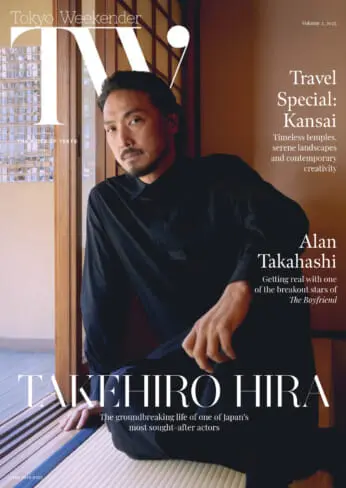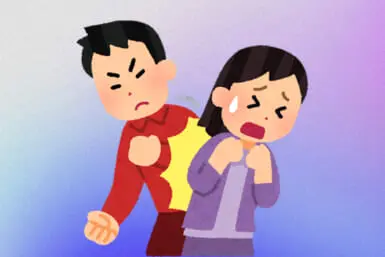The internet adage “they walked so that we could run” never rang more true than for the progression of queer rights and liberties in Japan. The country today is still a restrictive society under which many queer folk chafe — a place where most people tolerate the gays, but relatively few truly accept them. The 1990s onward, however, saw the birth of a new generation of activists, leaders, and average citizens leading open and radical lives that would have been near-impossible before.
In TW Queer Japan we spotlighted some of Japan’s LGBTQ icons through history, but now we turn our gaze towards the ones who are inspiring us today.
View this post on Instagram
Ai Haruna
Television personality, singer, and business entrepreneur Ai Haruna (born 1972) rose to fame as the first Japanese winner of Thailand’s Miss International Queen (a pageant for transgender women) in 2009. As a representative of the trans community, Haruna has spoken about her experience coming out as a “new half” (to use the term of the time) in middle school, being bullied by peers, and eventually dropping out of high school to work openly in clubs as a trans woman. Since childhood, Haruna has leaned on humor and impersonation skits to overcome bullying, continuing into her career in television. Her use of her “new half” persona — frequently slipping into a deep, masculine voice — for laughs has earned her criticism from some in the trans community, and admiration from others, who see it as a way of reclaiming trans identity to find success in the difficult entertainment world.
Our #personoftheweek is Maki Muraki, who is the director of Niji-Iro Diversity, a non-profit organization dedicated to creating a comfortable working environment for the LGBTQ+ community🏳️🌈 @nijidiversity
📷: TEDxUTokyo pic.twitter.com/2BDfjFylfw
— TELL (@TELLJapan) August 10, 2020
Maki Muraki
Based in Kansai, Maki Muraki (born 1974) founded and acts as director for Osaka’s celebrated Nijiiro Diversity NPO. Motivated by her own experiences with discrimination in the workplace, as well as the suffering of close LGBTQ friends, Muraki took the brave step to quit her job in 2012, founding what would eventually be Nijiiro Diversity (Nijiro meaning rainbow), Japan’s first non-profit to specifically aim at changing Japanese workplaces. Muraki and Nijiiro Diversity’s goal is to increase diversity and inclusion in Japanese companies and to eliminate anti-LGBTQ discrimination through training and education.
Nijiiro Diversity’s main activities have been collecting data, research, and surveys on Japan’s LGBTQ community and providing reliable data to Japanese society on positive working environments and queer issues. They also provide consultation services to companies to improve their inclusivity and LGBTQ training.
Muraki has authored a number of books on LGBTQ issues, notably Handbook for Transgender and Workplace Environment in 2019 and Rainbow-colored Changemaker – LGBTQ Perspective Changes Workplace and Society in 2020.
View this post on Instagram
Gon Matsunaka
Activist and NPO organizer based in Tokyo, Matsunaka Gon (born 1976) is best known for running ‘good aging yells,’ a pro bono organization for enriching LGBTQ communities and supporting the elderly, as well as acting as a founding member of the LGBTQ center in Shinjuku, Pride House Tokyo Legacy.
In line with similar Pride Houses organized in host cities such as Vancouver, Pride House Tokyo Legacy is an official program recognized by the Olympic and Paralympic organizers. This space aims to provide a space and resources for LGBTQ participants across international lines. Here, visitors can hold online and offline events, access an LGBTQ library, and receive individual consultations.
Following the conclusion of the Olympic Games in Tokyo, Pride House will continue as a permanent and sustainable center for LGBTQ activities.
View this post on Instagram
Sari Kaede Hatashima
Born in 1993, architect, model, and activist Sari Kaede Hatashima is dedicated to helping future generations of trans men and women attain their dreams of university and careers. Upon coming out and transitioning while attending university, Hatashima found herself in a world where few trans people were expected or had the resources to enter the professional sphere. Since then, she has taken to the podium to raise awareness about trans people in the professional world, and to serve as a role model for trans youth questioning whether higher education and career success are possible.
You can learn more about her story in the award-winning documentary You Decide.
View this post on Instagram
Tiger Shigetake
One of the youngest queer activists in Japan, Tiger Shigetake (born 1999) began speaking up for LGBTQ rights and against school bullying at the age of eighteen. Shigetake experienced bullying from his earliest years of elementary school and joined a panel before the United Nations to speak on the bullying of LGBTQ students. He later appeared and came out on national television.
Now only twenty-two, Shigetake continued rising in prominence in Tokyo’s queer community by winning the Mr. Gay Japan pageant in 2019, a platform he uses to promote LGBTQ activism and allyship.
Finally, the Heisei Era (1989 to 2019) has seen the rise of numerous fully-fledged and fully-open LGBTQ activists attaining public office.
Hace 14 años, Aya Kamikawa, se convertía en la primer mujer transgénero funcionaria municipal de Japón 🏳️🌈 🇯🇵 pic.twitter.com/oMwgHxEkE3
— Homosensual 🏳️🌈 (@SoyHomosensual) May 3, 2017
Aya Kamikawa
Aya Kamikawa (born 1968) made history as the first openly transgender woman to win an elected seat in 2003, when she became a Tokyo municipal official for Setagaya ward (having left the box for “sex” blank). She was re-elected in 2007, 2011, 2015, and 2019.
With the support and influence of trans figures such as Maki Carrousel, Kamikaya lobbied for the Act on Special Cases in Handling Gender Status for Persons with Gender Identity Disorder, amending Japanese law to allow transgender people to legally transition (though under highly restrictive circumstances). By 2005 Kamikawa was finally able to register as a woman. She also eliminated the “sex” category from Setagaya Ward government forms.
Kamikawa has been active in organizations such as Trans-net Japan, organizing meetings and events in support of transgender rights and awareness. As a government official and committee member of Trans-net, Kamikawa has worked to establish same-sex civil unions in Setagaya and Shibuya Wards, standardize the installation of yellow tiles for the visually impaired, improve support for single-parent families, and increase multilingual support for foreign residents, among other issues.
She can be followed on Twitter at @KamikawaAya.
(1/) Speaking of LGBT women activists, Kanako Otsuji is a leading figure for LGBT and Women’s rights in Japan right now! Otsuji’s bravery in coming out as a gay politician helped to pave the way for new LGBT rights in Japan! pic.twitter.com/nT76jZdIAM
— Influential Women in History (@285His) December 9, 2019
Kanako Otsuji
In 2013, author and politician Kanako Otsuji (born 1974) became the first openly gay woman to sit on the National Diet, when a resignation in the House of Councillors moved her into the seat. In 2017, she made history a second time when she won the 2017 general election for the House of Representatives, a position she still holds at the time of this writing.
Throughout her career, Otsuji has been instrumental in bringing housing for same-sex couples to Osaka and has represented Japan’s queer rights movement in international conventions. She has also worked to end discrimination against LGBTQ people in job hiring. Her story has been told through her autobiography, Coming Out: A Journey for Finding Your True Self, as well as director Naomi Hiltz’s documentary film Kanako: Challenging the System.
Election of gay lawmaker in Japan spurs hopes for #SameSexMarriage #GayJapan @ishikawataiga@LGBTPinkieB @Openly – Taiga Ishikawa said he believes same-sex marriage will be legalised during his six-year term https://t.co/qVbC63Qggr pic.twitter.com/AthL7GkIZT
— ILoveGay Japan 🇯🇵 (@ILoveGayJapan) July 23, 2019
Taiga Ishikawa
2011 saw the elections of the first two openly gay male politicians, Taiga Ishikawa and Wataru Ishizaka.
Ishikawa (born 1974) took office in Tokyo’s Toshima Ward assembly, later winning a seat in the House of Councillors in 2019. His activism includes protecting foreign nationals, refugee issues, and successfully campaigning for the creation of a municipal domestic partnership registry in Toshima to grant ward-managed housing and hospital visitation rights to lifelong partners. He also prompted Toshima Ward to add an article for LGBT protection from discrimination to its gender equality bylaws.
Like Kamikawa and Otsuji, Ishikawa has published a memoir on growing up as a gay man and has contributed to several books on sexuality.
なかの区報(4月10日号)に「 #LGBTQ 」の特集記事が掲載されました を投稿しました。 #エキサイトブログhttps://t.co/YzYp1HdHf4 pic.twitter.com/8ppZepmK6x
— 中野区議会議員石坂わたる (@ishizakawataru) April 18, 2020
Wataru Ishizaka
Born in 1976, Wataru Ishizaka was elected to the Nakano Ward assembly in the same 2011 election as Ishikawa. As well as the first openly gay politician elected in Nakano, he was also the first assembly member to be qualified as a mental health social worker, and has had a long career instructing and supporting students with special needs and autism.
His accomplishments include founding the Association of the LGBT Municipal Representatives together with Kamikawa and Ishizaka to ensure rights and legal protections for sexual minorities. He has also expanded Nakano’s residence relocation support programs to include same-sex couples, changed his ward’s policies to allow same-sex couples access to their partner’s medical status as would a family member, and worked to provide resources and support to LGBTQ people suffering from domestic violence.
He continues to participate in organizations concerned with the welfare or visibility of sexual minorities and to raise public awareness of HIV prevention.
Feeling Pride at Home
With cities in the grip of the global coronavirus pandemic and this year’s Tokyo Pride looking to be a restrained, online affair, it’s easy to feel as if we were living through the worst of history. However, it is worthwhile to remember how far we have come globally in the struggle for LGBTQ equality, and the simple joys, freedoms, and internal validation we have come to take for granted.
We are privileged to be alive today, and in the company of a bright and vibrant community of Japan’s queer individuals. As we settle in to watch our Pride celebrations on Zoom this month, consider the ways, as LGBTQ members or as allies, we can create our own authentic spaces–whether that’s just in our room, the gay district of Tokyo, or something to expand to the whole world.
Written with input and assistance from Shane Healy, Yutaka Kubo, and Paul Schneider.
TW Queer Japan is a regular column that throws a spotlight on important topics and people from the LGBTQ community in Japan. If you have any stories to share feel free to contact us at editor@weekender.com
Read similar stories:









